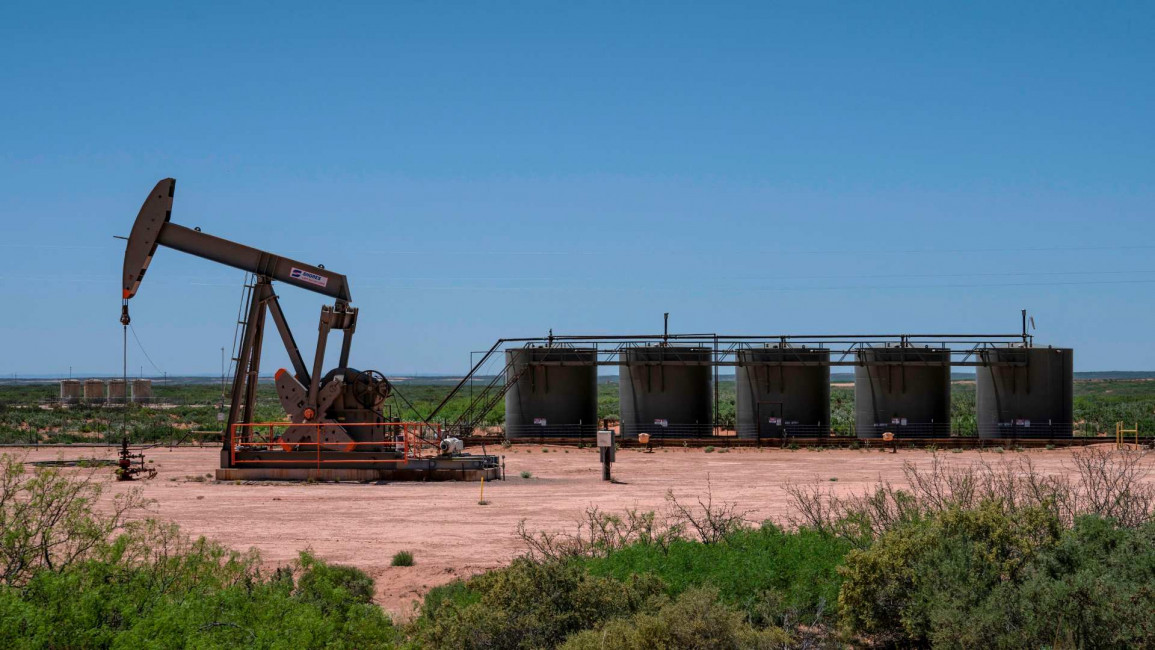Oil price lifted by US-Iran tensions after rollercoaster week
US oil prices surged on Friday and headed for a positive finish to a tumultuous week that saw prices drop below zero, as output cuts and US-Iran tensions lifted coronavirus-ravaged markets.
US benchmark West Texas Intermediate (WTI) for June delivery was up 8.1 percent at $17.85 in afternoon Asian trade, after settling 20 percent higher on Thursday.
International benchmark Brent for June was changing hands at $22.55 a barrel, up 5.7 percent.
Oil prices have been hit hard as the virus pandemic strangles demand owing to lockdowns and travel restrictions, with US crude falling into negative territory for the first time Monday as storage space ran low.
In-depth: Less than zero: Saudi Arabia's role in crushing the US oil industry
Earlier this month, exporting group OPEC and its partners agreed to cut output by almost 10 million barrels a day from May to shore up markets, bringing an end to a Saudi-Russia price war.
ANZ said there were signs that oil producers had started cutting production, helping push prices up.
Twitter Post
|
"Kuwait said that it had already started cutting production ahead of the planned 1 May start of the recent OPEC+ supply agreement. Algeria also told OPEC it would be cutting immediately," the bank said in a note.
There were also signs US output is beginning to fall - the Energy Information Administration said American crude production fell slightly to 12.2 million barrels per day last week.
In addition, tensions in the crude-rich Middle East gave a boost to markets.
After President Donald Trump ordered the US Navy to destroy any Iranian boats that harass American ships in the Gulf, the Islamic Republic's Revolutionary Guards warned Thursday of a "decisive response".
The Gulf is a major gateway for oil to reach international markets, and spikes in US-Iran tensions typically drive prices higher.
Even though prices are stabilising, they remain at multi-year lows and analysts say that demand needs to pick up again for them to truly recover.
AxiCorp global market strategist Stephen Innes said it was "probably rational to temper expectations as it's going to take more than a celestial alignment to get WTI to stick above $15 per barrel this month, let alone super tack to $20".
Follow us on Facebook, Twitter and Instagram to stay connected



